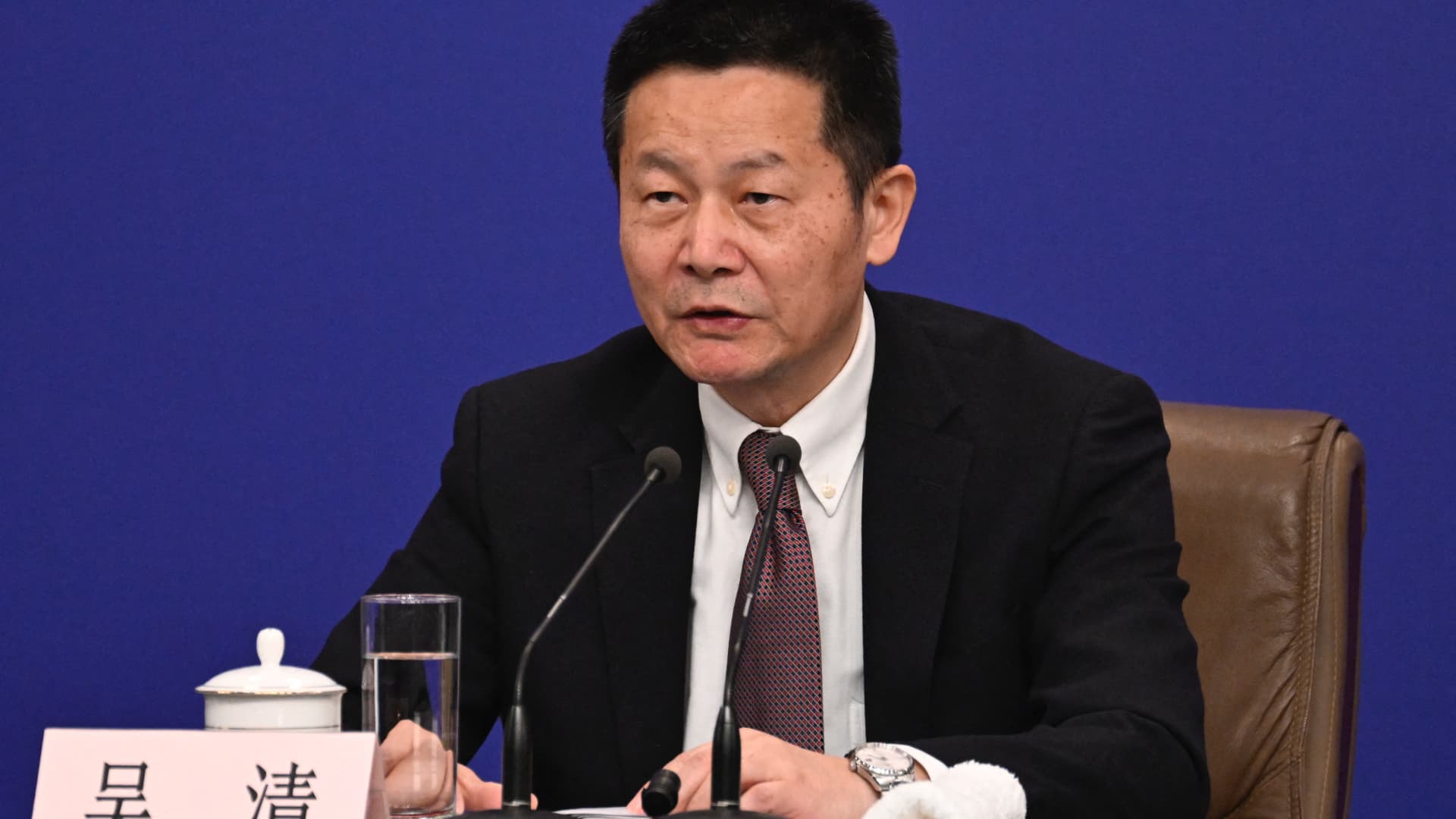BEIJING — China’s top securities regulator vowed to “strictly” crack down on market manipulators, while stating that protecting small investors was a “core task.”
Ensuring fairness, especially in a market dominated by smaller investors, is the regulator’s core task, said Wu Qing, chairman of the China Securities Regulatory Commission, on Wednesday at a joint press conference alongside the country’s other top economic and financial planners.
Wu outlined measures deemed necessary to improve the quality of listed companies and increase returns on investment. They include: encouraging listed companies to improve stability, timeliness and predictability of dividend payouts, stricter delisting rules, and expanding inspections of listed companies.
He said that openness, fairness and justice should be the most important principles in the capital market.
“China’s market is the second largest in the world, but it’s not as strong,” Wu said, adding the recent market volatility exposed deep-seated issues.
He said investors need to be better protected, so they can have confidence and trust. It would also attract longer term investors, he added.
At the same press conference, Pan Gongsheng, governor of the People’s Bank of China, also pledged support for overseas listings for high-quality Chinese companies.
Following recent extreme market volatility, Beijing has stepped up measures to support its beleaguered stock markets in the last few weeks.
These include tightening regulatory restrictions on its rapidly booming quant trading industry and curbing short selling, changing its top securities regulator and share purchases by a “national team.”
The appointment of markets veteran Wu as chairman of the China Securities Regulatory Commission in early February preceded the curbs on quant traders.
Wu is known as “Broker Butcher” for his crackdown on traders in his previous roles as acting vice mayor of China’s major financial hub Shanghai and chairman of the Shanghai Stock Exchange.
The Hang Seng Index, a benchmark of Hong Kong listings that includes many offshore Chinese stocks, is coming off four-straight annual losses, while the CSI300 index of the largest blue chips listed in the mainland has booked losses for three straight years.
With the mainland property market in the doldrums and the stock markets in freefall, desperate mainland investors had looked elsewhere for better returns despite stringent capital controls.
At last year’s parliamentary meeting, Beijing had announced an overhaul of finance and tech regulation by establishing party-led commissions to oversee the two sectors as Xi Jinping gained an unprecedented third term as president.






